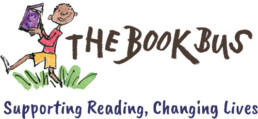Understanding how The Book Bus supports the UN’s Sustainable Development Goals
From creating inspiration local reading spaces, to teacher training and support, The Book Bus strives to have the greatest possible impact when transforming lives through reading.
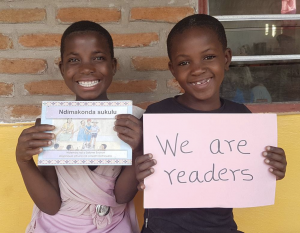
Since 2008, we’ve collaborated closely with in-country stakeholders and our local teams, while proactively researching new ways to optimise literary projects in Zambia and beyond. The results speak for themselves – we’ve helped create over 100,000 child readers.
Aligning our work with the United Nations’ Sustainable Development Goals (or “SDGs”) is one way in which we endeavour to build a more sustainable future for all. This article will walk you through some of these goals. Along the way, it will discuss how they map to the The Book Bus’s activities in Zambia.
What are the United Nation’s Sustainable Development Goals?
Also known as the “Global Goals”, the UN describes how the 17 interlinked SDGs are designed to be a “blueprint to achieve a better and more sustainable future for all”.
Zambia’s National Development plan is informed by its commitment to the UN’s Sustainable Development Goals.[i] This commitment is reflected in the following strategic objectives of Zambia’s Seventh National Development Plan (7NDP):
- To diversify and make economic growth inclusive;
- To reduce poverty and vulnerability;
- To reduce developmental inequalities;
- To enhance human development;
- To create a conducive governance environment for a diversified and inclusive economy.[ii]
Understanding how The Book Bus supports the UN’s Sustainable Development Goals
The Book Bus aims to support these efforts to domesticate and implement the SDGs in Zambia. Some of the ways that The Book Bus supports the SDGs’ implementation in Zambia are discussed below.
SDG 1: No poverty
The first Sustainable Development Goal is to end poverty.
Although global poverty has dramatically decreased in all regions, the rate of decline has been uneven, with much slower rates of decline in many African countries. Though Zambia has achieved impressive economic growth, it still ranks among the countries with the highest levels of inequality.
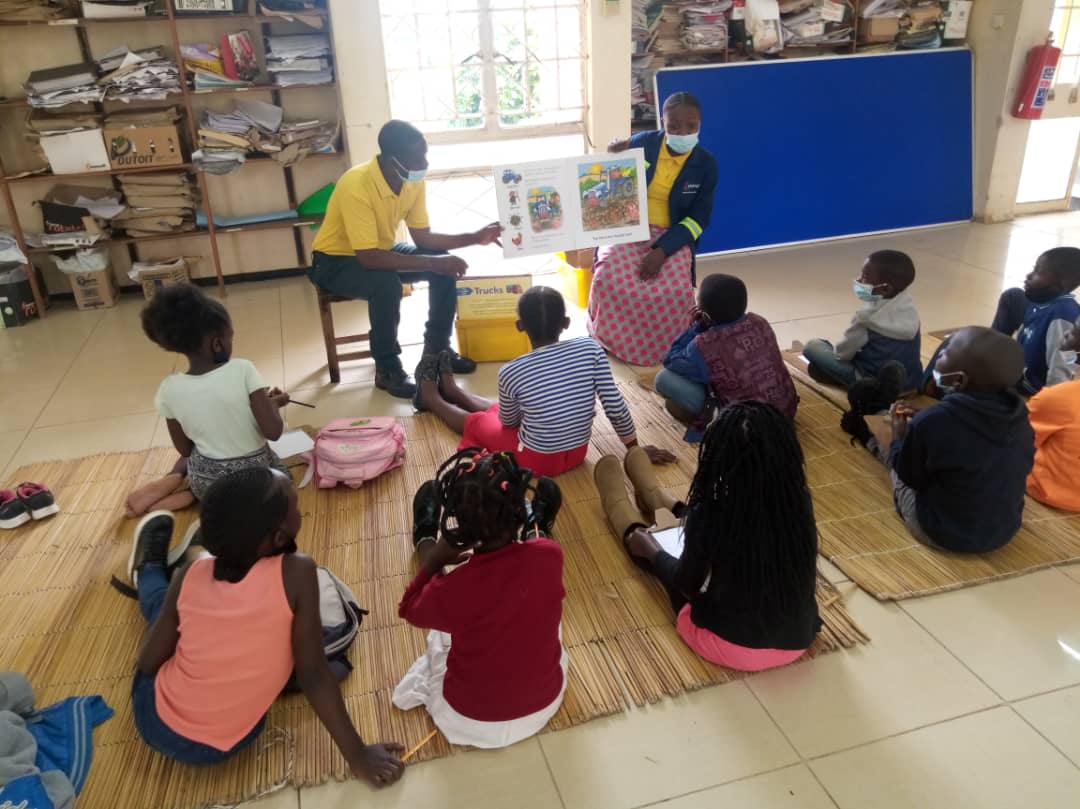
By promoting literacy attainment among children, The Book Bus promotes a long-term goal of reducing poverty in Zambia and beyond. We aim to share the opportunities and economic benefits that accompany reading, reducing inequality and the poverty that often accompanies it.
SDG 2: Zero hunger
The second SDG is zero hunger. Hunger and poverty often come together, with the UN describing how food and agriculture sectors are key to eradicating hunger and poverty.
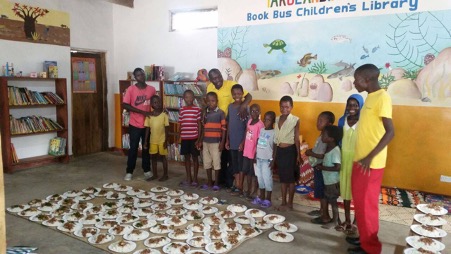
Functional literacy is a protective factor against poverty, and in turn against the hunger linked to it. Greater literacy skills can also impact hunger directly. For instance, The Book Bus has helped farmers to read the instructions on how to plant and maximise the yield from their harvests.
SDG 3: Good health and wellbeing
The third SDG is good health and wellbeing. It describes how “ensuring healthy lives and promoting the well-being at all ages is essential to sustainable development.”
The Book Bus’s focus on literacy provision underpins all aspects of providing a quality education, and this includes an understanding of good health of wellbeing for the children. By contrast, low literacy is associated with several adverse health outcomes.
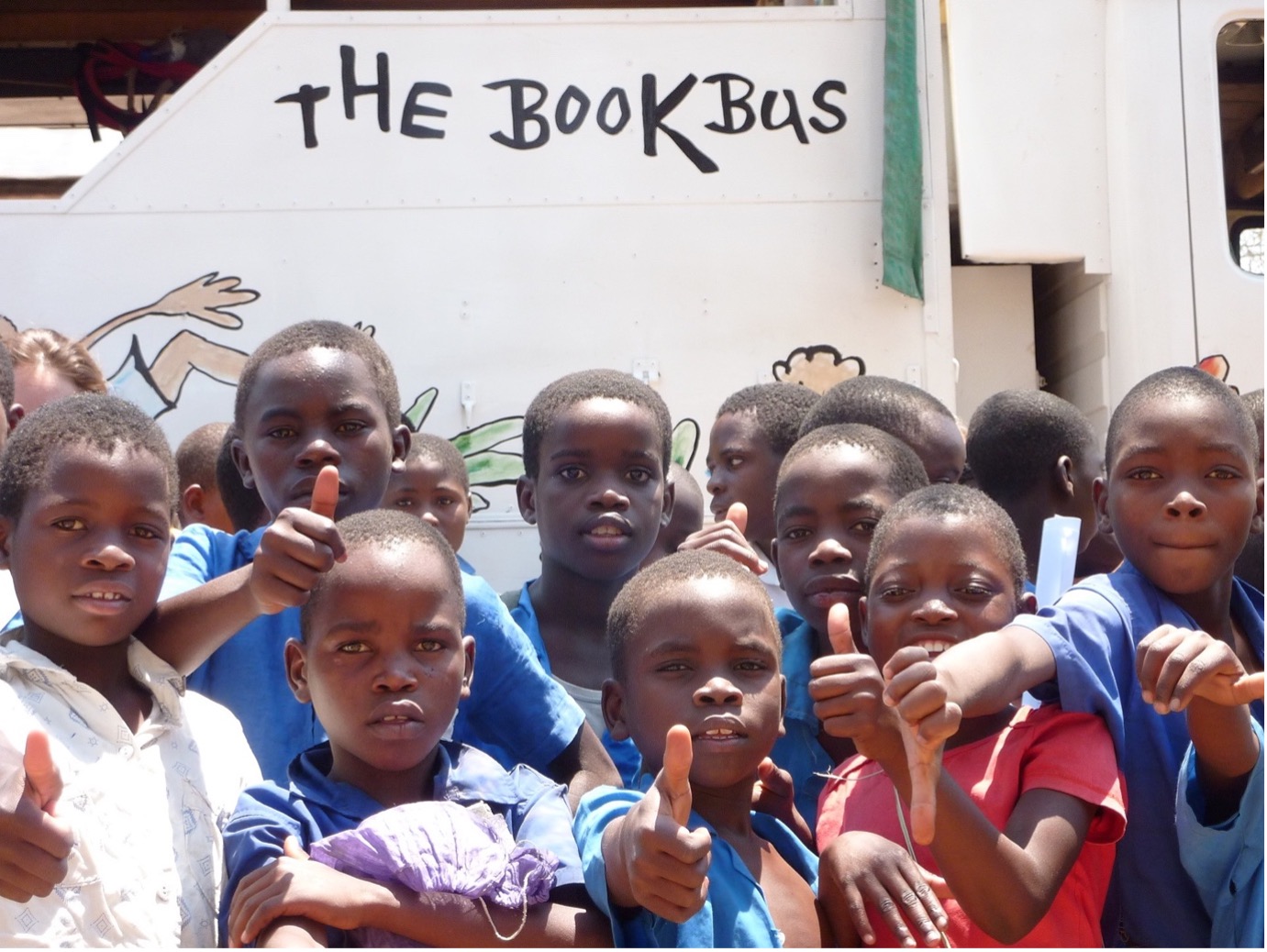
The Book Bus further aims to contribute to the improvement of health and wellbeing by equipping readers with the ability to use resources that are available to them. For instance, readers can understand the advice on health posters, or read the instructions on a bottle of medicine.
SDG 4: Quality Education
The fourth SDG aims to “ensure that all girls and boys complete free, equitable and quality primary and secondary education leading to relevant and Goal-4 effective learning outcomes.”
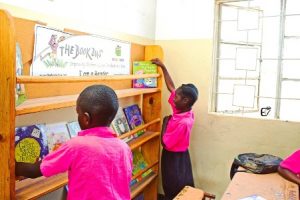
The Book Bus’s focus on improving literacy provision supports this SDG in several ways. We help schools participating in our literacy schemes to improve the quality of the education they deliver. This includes providing access to quality learning materials, reading schemes, and phonic activities, while also providing fortnightly literacy workshops.
Our initiatives have proven success in improving learning outcomes among pupils in Zambia, supporting the goal of providing a quality education.
SDG 5: Gender Equality
The fifth SDG is to achieve gender equality and empower all women and girls.
Girl’s literacy is of crucial importance in addressing wider issues of gender inequality. Literacy is an essential skill that can empower young girls around the world. Learning to read and write is furthermore a transformative experience, enabling girls to unlock untapped opportunities.
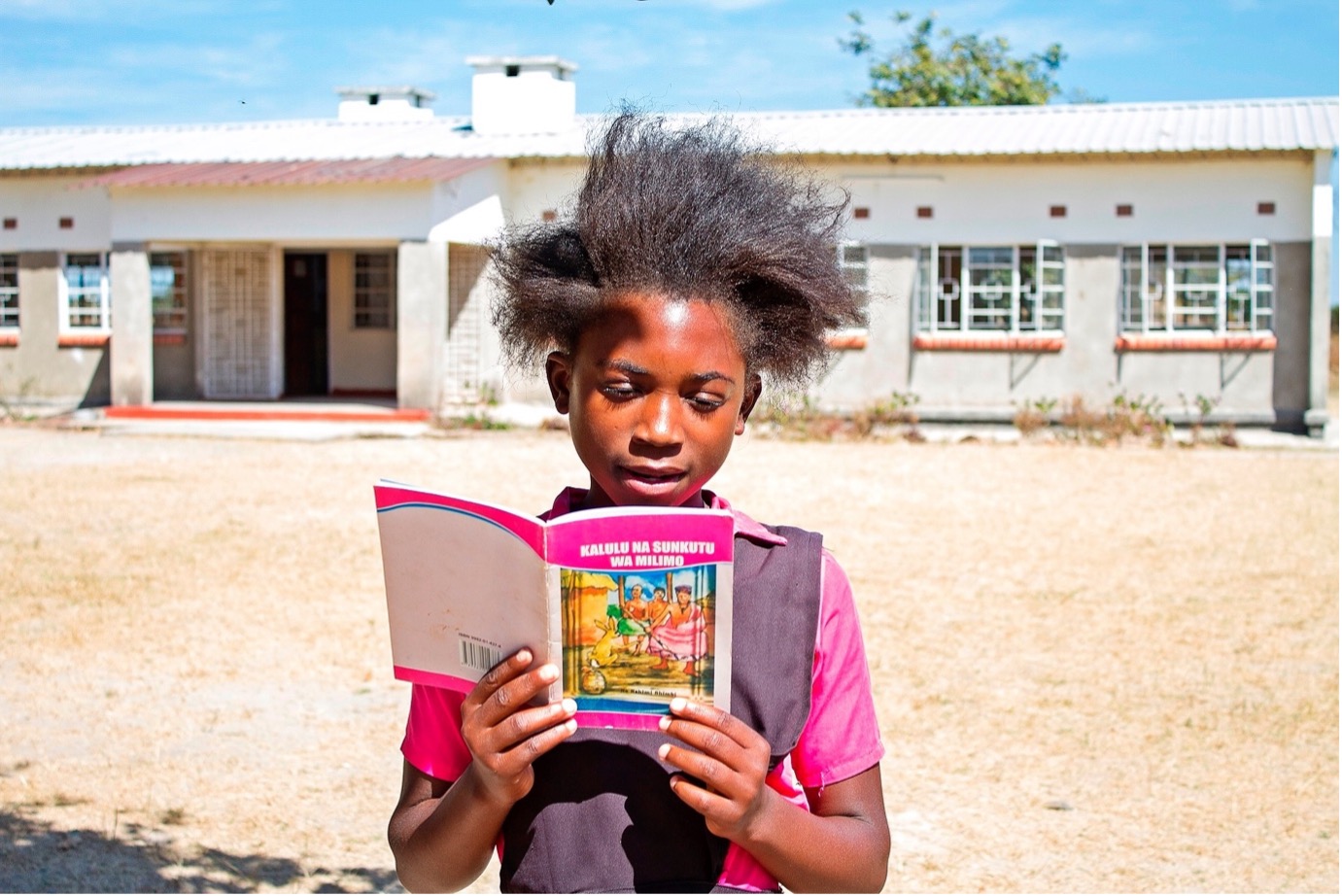
Literacy builds confidence and self-esteem. Female literacy also has benefits that can affect future generations, from reducing infant mortality to increasing women’s agency, leadership skills, and civic engagement.[iii]
The Book Bus creates safe and comfortable reading environments for girls, taking time to select books and activities that inspire confidence and self-belief in girls. Our successful “I am a reader” programme, for instance, has a 1:1 ratio of female to male participants. We furthermore support schools that have deliberate policies to keep girls in school.
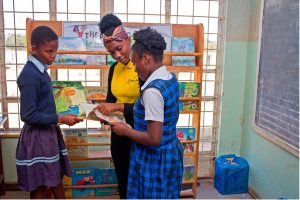
Our volunteers also play an important role in promoting gender equality. 85% of our volunteers are female, while our female reading mentors act as role models that girls can relate to.
We further train and equip female youth volunteers with transferrable skills to support them during their time on our projects and during future personal growth. Book Bus volunteers who provide literacy support furthermore receive regular coaching and training.
These opportunities help equip youth mentors with skills and confidence for life. They further equip volunteers with effective strategies for providing feedback that is affirming and empowering to girls on literacy projects and beyond.
SDG 8: Decent work and economic growth
The eighth SDG is to “promote sustained, inclusive and sustainable economic growth, full and productive employment and decent work for all.”
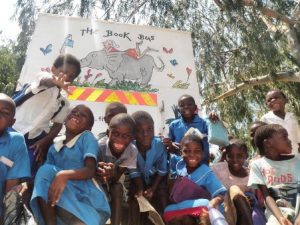
The Book Bus’s drive to promote literacy is intrinsically linked to promoting economic growth and employment in the countries where we work.
Literacy levels correlate with economic growth, with the OECD estimating that “greater educational attainment has accounted for about half of the economic growth in OECD countries in the past 50 years.”[iv]
Functional literacy protects against poverty by increasing employment prospects, while making an individual less vulnerable to exploitation. Literacy is furthermore fundamental in accessing both vocational and technical training, as well as in academic higher education.
SDG 10: Reduced inequalities
The tenth SDG is to reduce inequality within and among countries. For The Book Bus’s work, this goal is closely linked with providing quality education (SDG 4) and reducing poverty (SDG 1).
Zambia has achieved impressive economic growth, but still ranks among the countries with the highest levels of inequality. Illiteracy is a significant factor perpetuating inequality and poverty. Illiterate adults are barred from opportunities of employment and entrepreneurship and are also disproportionately more likely to live in poverty than those who can read and write.
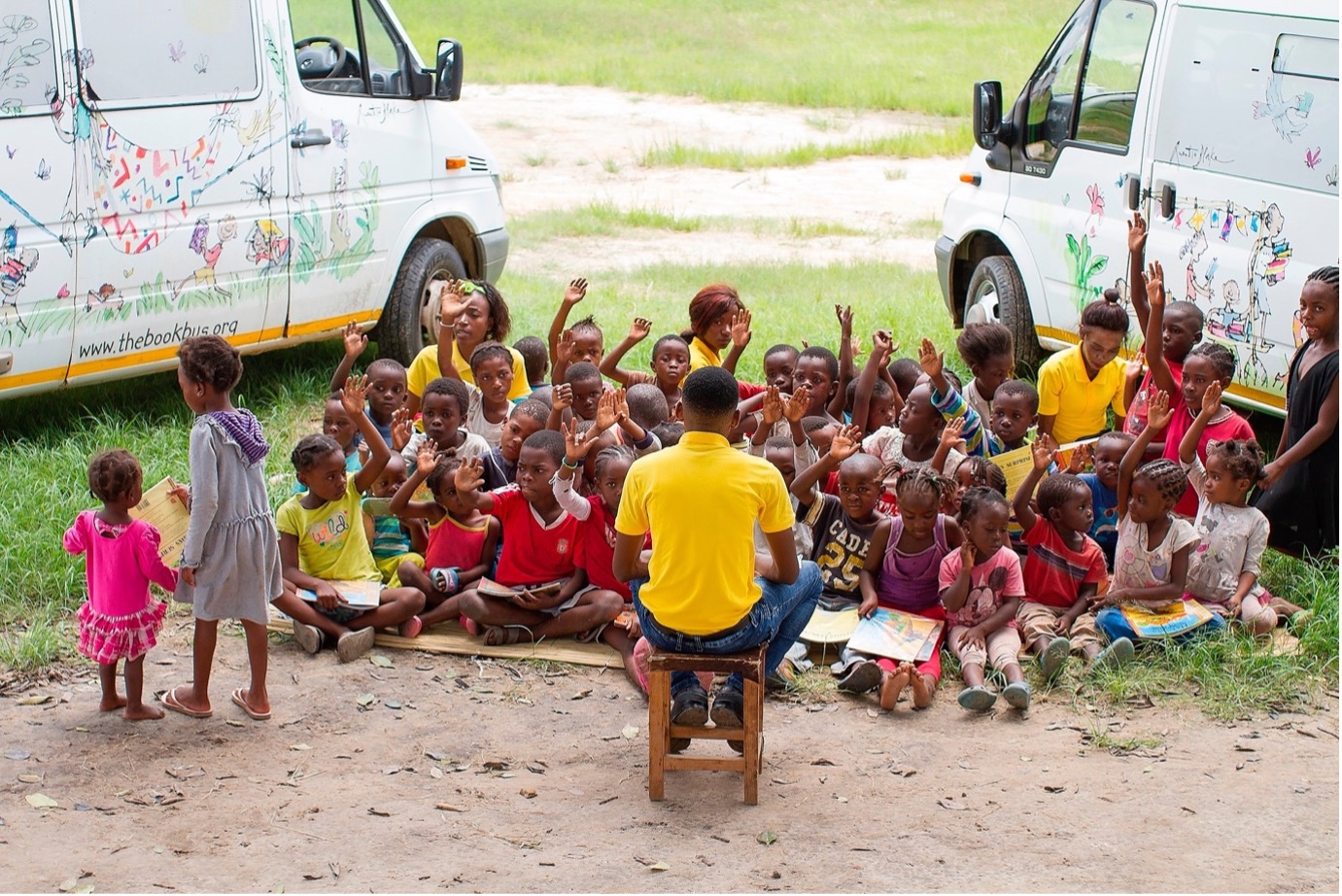
The Book Bus supports the long-term goal of reducing inequality within countries, including SDG 10’s aim to “progressively achieve and sustain income growth of the bottom 40 percent of the population at a rate higher than the national average.”
By creating even more readers in Zambia, the Book Bus aims to reduce the attainment gap between readers and non-readers. Our literacy schemes aim to equip children with greater future employment and entrepreneurial opportunities, while promoting access to vocational training, technical skills, and further education.
SDG 11: Sustainable cities and communities
The eleventh SDG is to “make cities and human settlements inclusive, safe, resilient and sustainable.”
This goal aims to “substantially increase the number of cities and human settlements adopting and implementing integrated policies and plans towards inclusion, resource efficiency, mitigation and adaptation to climate change, resilience to disasters, and develop and implement … holistic disaster risk management at all levels.”
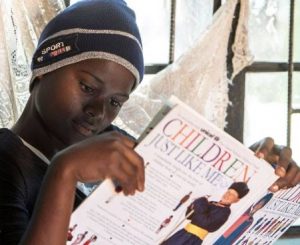
Education and building sustainable communities are frequently linked. Providing a quality education often plays a key role in educating on the importance of issues like inclusivity, sustainability, resource efficiency, and climate change.
Literacy can further play a key practical role building sustainable cities and communities. For instance, being able to read instructions can help with resource efficiency.
The Book Bus further strive to have a positive impact on sustainability. For instance, we promote local publishing, part of our long-term efforts to create a more sustainable local infrastructure. In time, we hope that more and more books will be written, illustrated and published in country.
The Book Bus furthermore create inclusive library and learning environments in schools, contributing to safe communities. These spaces provide access to books and education, They help equip readers with the ability to understand resources that will support inclusivity, sustainability, resource efficiency, and adaptation to climate change.
SDG 12: Responsible Consumption and Production.
The twelfth SDG is to “ensure sustainable consumption and production patterns”.
This includes ensuring “that people everywhere have the relevant information and awareness for sustainable development and lifestyles in harmony with nature”, while supporting “developing countries to strengthen their scientific and technological capacity to move towards more sustainable patterns of consumption and production.”
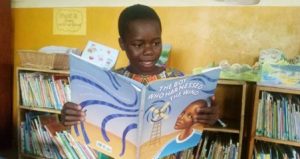
Reading is often the link between receiving relevant information for a sustainable lifestyle and the ability to read and access that information. Readers are equipped with the ability to access resources that are available to them. Children who are encouraged and taught to reader often furthermore go back and share the knowledge they acquire with their community, making previously inaccessible resources available to those communities.
By promoting literacy, The Book Bus aims to help spread awareness and understanding regarding sustainable living. We are also doing our best to promote sustainable local publishing, part of a long-term effort to create more sustainable local infrastructure.
SDG 13: Climate Action
The thirteenth SDG is to “take urgent action to combat climate change and its impacts,” and aims to alleviate the disruption caused by climate change on economies and lives.
While helping to promote and achieve SDG 12’s goal of “responsible consumption and production”, The Book Bus also support SDG 13. We aim to equip readers with the literacy skills needed to consume available guidance and education regarding climate action, sharing this understanding with their local communities.
SDG 16: Peace, Justice & Strong Institutions
The sixteenth SDG aims to “promote peaceful and inclusive societies for sustainable development, provide access to justice for all and build effective, accountable and inclusive institutions at all levels.”
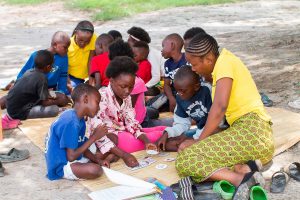
The UN describes how “conflict, insecurity, weak institutions and limited access to justice remain a great threat to sustainable development.”
Improved education a key contributor to peace. In fact, education features in two of the 24 indicators in the Institute for Economics and Peace’s “Positive Peace Index”.[v]
By contributing to improving children’s education, The Book Bus also helps to contribute to peaceful societies. Not only that, but we create inclusive reading spaces that support equal access to education.
SDG 17: Partnerships for the goals
The final SDG is to “revitalise the global partnership for sustainable development”.
In an increasingly interconnected world, this SDG aims to improve access to technology and knowledge, sharing ideas and fostering innovating. It aims to support sustainable growth and development within developing countries, while fostering cooperation and fair trade between nations when achieving all 17 Global Goals.
Reading helps to increase access to knowledge and resources, which in turn helps share ideas and foster innovation. The Book Bus also promotes investment in some of the least developed areas, while supporting sustainable local publishing in Zambia.
In striving to improve literacy rates in Zambia, The Book Bus collaborates with local government, NGOs, the Zambian ministry of education, and other institutions. We recognise the importance of building close partnerships, and put the principle behind this SDG into practice when sharing the joy of reading with children in Zambia.
Building a “more sustainable future for all”
The UN’s Social Development Goals help inform The Book Bus’s efforts to build a “more sustainable future” for children in Zambia and beyond. There are a number of ways through which can support our drive to transform lives through reading. This includes giving a one-off or monthly donation, or gifting an item from The Book Bus Virtual Store.
Endnotes:
[i] Republic of Zambia (2020), Zambia Sustainable Development Goals Voluntary National Review. Retrieved from https://sustainabledevelopment.un.org/content/documents/26305VNR_2020_Zambia_Report.pdf on 27/06/2021.
[ii] Republic of Zambia (2017) National Development Plan, p. 54. Retrieved from https://www.mndp.gov.zm/wp-content/uploads/2018/05/7NDP.pdf on 27/06/2021.
[iii] The United Nationals (2006), Education for All: Global Monitoring Report. Cited in Wolfe, Stephanie (2019), Day of the Girl: Literacy is an essential skill to empower young girls around the world. Retrieved from https://readingpartners.org/blog/literacy-essential-skill-empower-young-girls-around-world/ on 27/06/2021.
[iv] Organisation for Economic Co-operation and Development, Inequality. Retrieved from https://www.oecd.org/social/inequality.htm on 27/06/2021.
[v] Thomson, Stephen (2015), Links Between Education and Peace. Retrieved from https://gsdrc.org/publications/links-between-education-and-peace/ on 27/06/2021.
